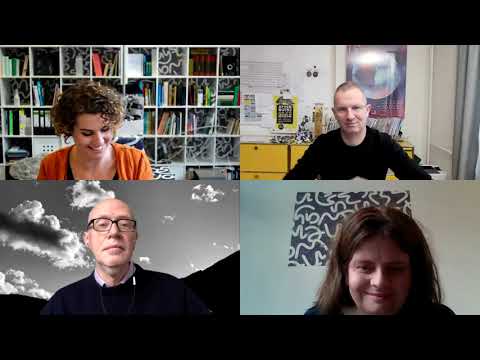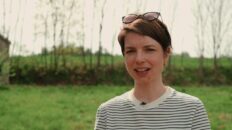Collection objects are extremely powerful tools to tell stories. A T. rex skeleton on display helps to create fascination for the era of dinosaurs – that is obvious. But how many other stories could it tell, and how can it help us to connect with different audiences?
In this session, three #museum experts give us an insight into their approach and discuss the opportunities and limitations of using objects as powerful tools in communication. “One Object Tells It All” – the speakers in this session choose one object from their museum and use this object to illustrate their approach, highlighting the idea behind their particular concept and what makes it unusual.
Speakers:
• Basil Thüring, Co-Director of Naturhistorisches Museum Basel, CH
• Léontine Meijer-van Mensch, Director of Völkerkundemuseum Leipzig, DE
• Ken Arnold, Creative Director of Medical Museion Kopenhagen, DK Moderation:
• Linda Gallé, Exhibition Curator of Museum für Naturkunde Berlin, DE
In „New Ways“ we talked about new audiences, the power of objects and storytelling, the limits of openness and the question whether science and collections need to be translated to the public at all, together with inspiring speakers.
How far can we go in opening #science and collections to the public? Is there a limit to what we can discuss, where we can grant access and participation? In this session, three projects will be presented that deal with openness and #participation in a special way. It aims to stimulate an exchange about what is possible and whether limits are even in sight.
Speakers:
• Melanie Grant, Collection Development Manager, Wellcome Collection London, UK
• Ilse van Zeeland, Freelance exhibition curator and conceptualizer • Ines Theileis, Singer, Berlin, DE Moderation:
• Wiebke Rössig, Projectlead Experimental Field of Participation and Open Science, Museum für Naturkunde Berlin, DE
The climate is changing, education is suddenly digital and social movements are changing the way we perceive the world. At this time, life pulsates in some museums, while others face the challenge of connecting with their audience at all. In this complex setting, how do we manage to create spaces that allow us to become and remain relevant?
Speakers:
• Injonge Karangwa, Singer, Songwriter, Leading Organizer of Hamwe Festival, Kigali Rwanda, RW
• Caroline Breunesse, Naturalis Biodiversity Centre, Leiden, NL
• Olinka Vištica, Founder of Museum of Broken Realtionships, Zagreb, HR
Moderation:
• Meryem Korun, Projectmanager Fossil heritage Tanzania, Museum für Naturkunde Berlin, DE
Who did we forget? Who are we missing? How do we reach these missing audiences? In a moderated panel discussion, best and worst practices were discussed and possibilities were worked out on how we can expand our target groups and break up our own thought patterns and processes.
Speakers:
• Raul Krauthausen, Activist for inclusion and accessibility, Berlin, DE
• Mandy Sanger, Head of Education, District Six Museum, Cape Town, ZA
• Ngaire Blankenberg, Cultural Consultant, Barcelona, ES
Moderation:
• Uwe Moldrzyk, Head of Exhibitions, Museum für Naturkunde Berlin, DE
How can we break down the barriers between #exhibition, #research and collection – or should we do so at all? Do we have to translate for the public or should we let visitors experience the real thing? Is there an alienation effect through the translation of a curator, or do we scare off visitors when we confront them with the complexity of research? With this session, we wanted to initiate a debate on one of the hot topics in #sciencecommunication: Making #science and collection visible to the public.
Speakers:
• Catherine Oualian, Trainer at the Ecole de la mediation, Paris, FR
• Michael John Gorman, Founding Director of BIOTOPIA – Naturkundemuseum Bayern, Munich, DE
• Uwe Moldrzyk, Head of Exhibitions, Museum für Naturkunde Berlin, DE Moderation:
• Vivien Strohmann, Coordinator Experimental Field of Participation and Open Science, Museum für Naturkunde Berlin, DE
More information: Museum für Naturkunde Berlin







